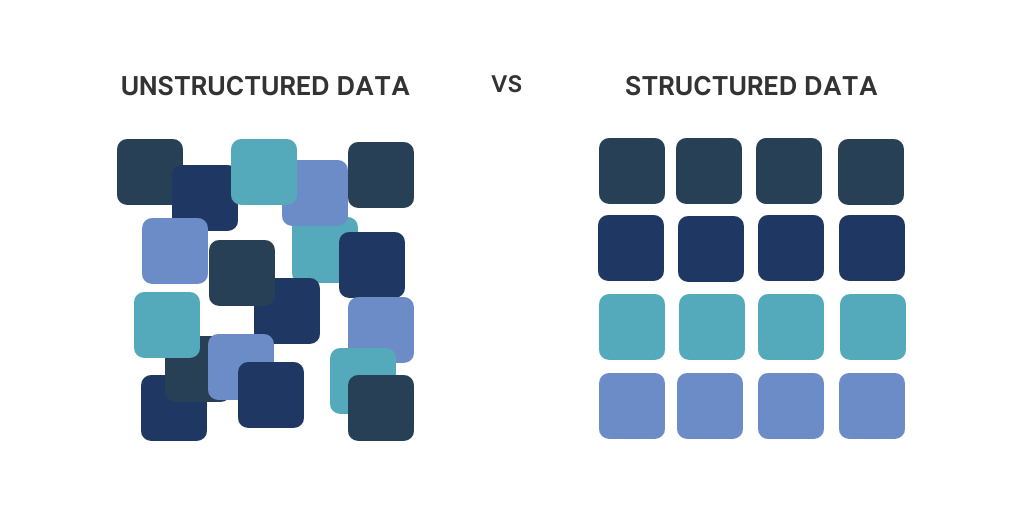The world of digital marketing is constantly evolving. With changing user behaviors and ever-shifting search engine algorithms, making a strong online impression has become more challenging than ever. Creating engaging, relatable content is no longer enough to capture your audience’s attention. In today’s landscape, organic SEO (Search Engine Optimization) is essential to building a robust digital presence. Simply put, SEO has taken over the digital world, and to succeed, it must be done the right way.
This is where SEO comes in. However, implementing and maintaining a robust SEO strategy is anything but easy. With almost every other website trying to stand out with competitive content and defined SEO practices in place, it has become extremely critical to not just implement organic SEO but also to evaluate its efforts, identify gaps, and ensure optimal improvement.
Setting clear objectives and monitoring key performance indicators (KPIs) can help you better analyze your SEO efforts against certain benchmarks, thereby paving the way for optimized website performance, growth, and success. To make this journey easier for you, we have prepared this comprehensive content marketing guide on SEO success that will help you explore the essential KPIs & metrics of organic SEO and how to obtain SEO success in 2023!
The Fundamentals of Organic SEO
What is Organic SEO?
Organic SEO is the art and science of optimizing your website to rank higher in search engine results pages (SERPs) naturally. Also called natural or unpaid SEO, organic SEO utilizes various techniques and a coherent strategy to enhance a website’s visibility and attract organic traffic right from the search engines.
Why is Organic SEO Important?
As explained above, SEO improves the visibility of a website and attracts visitors right from the search engine results pages (SERPs). This means that people are discovering your business or brand. As you attract more organic traffic, the chance of experiencing more conversions also increases, simultaneously enhancing the scope of earning more revenue. Therefore, ranking well in organic search results can immensely influence your online success.
Organic SEO vs. Paid Advertising
While paid advertising can deliver quick results, SEO provides long-term sustainability. It is much like renting a place vs living in your own house – one gives immediate shelter, while the other builds equity over time.
KPIs & Metrics for Organic SEO Success
What is Organic SEO KPIs?
SEO KPIs, or SEO Key Performance Indicators, refer to certain metrics that help measure the success of your website’s SEO efforts. These metrics provide valuable insights regarding the overall performance of your website in search engine results pages (SERPs) and demonstrates how well your organic traffic is interacting with your website. By monitoring and analyzing the organic SEO KPIs, you can identify areas that need to be improved and make data-driven optimizations.
Importance of Tracking Organic SEO KPIs
Monitoring organic SEO KPIs is important because it enables website owners to assess the impact of their SEO efforts and take necessary actions to improve their website’s visibility and performance. Tracking organic SEO metrics helps in:
- Evaluating the efficacy of SEO strategies
- Assessing the website’s performance
- Identifying potential bottlenecks and areas of improvement
- Monitoring long-term progress
- Making data-driven decisions
Now that we’ve laid the groundwork, let’s explore the key performance indicators (KPIs) that matter most in organic SEO for 2023.
10 Essential Organic SEO KPIs & Metrics to Track
Organic Traffic
The lifeblood of organic SEO, organic traffic measures the number of people that visits your website through search engine results. Google Analytics is your go-to tool for tracking this KPI.
Click-Through Rate (CTR)
CTR reveals the percentage of users who click on your search result when it appears in the SERPs. It’s a direct indicator of the effectiveness of your title and meta description.
Keyword Ranking
Tracking your keyword positions in SERPs is fundamental. Tools like Moz and SEMrush can provide detailed insights into where your keywords stand.
Organic Conversion Rate
Ultimately, it’s not just about traffic but conversions. The number of visitors who not just visit your website but also fulfil a specific desired actions (for e.g., signing up, filling a form, purchasing a products, etc.) is an important metric to monitor as well.
Bounce Rate
A high bounce rate indicates that visitors are leaving your site without engaging with it. It’s a red flag, suggesting that your content or user experience needs improvement.
Organic Impressions
Impressions tell you how often your website appears in the SERPs. Monitoring this metric can help you gauge your visibility.
Average Session Duration
This metric reveals how long visitors spend on your website. The equation is simple – the longer the session duration, the more engaging the content.
Pages Per Session
Tracking the number of pages visitors view during a single session helps you assess your site’s user experience and content relevance.
Organic CTR by Page
Not all pages on your site will have the same CTR. Analyzing CTR by page can highlight which pages need optimization.
Page Load Time
The loading time of your page is an important metric provided that it demonstrates a critical aspect of user experience. If the page load time is longer than 5 seconds, it will potentially increase the bounce rate as well, indicating that visitors are leaving your website.
Benchmarks for Organic SEO Success
To measure your organic SEO performance effectively, you need benchmarks. These benchmarks provide context and enable you to compare your performance against industry standards.
Industry-Specific Keyword Ranking
Benchmark your keyword rankings against competitors in your industry to understand where you stand.
Competitive Backlink Analysis
Assessing your backlink profile against competitors can reveal opportunities to improve your site’s authority.
Content-Length Benchmarks
Longer content often performs better in organic search. Determine the optimal content length for your industry.
Mobile Optimization
With the increasing use of mobile devices, benchmark your mobile optimization efforts against industry standards.
Trends in Organic SEO for 2023
The world of organic SEO is in a constant state of flux. Staying updated with the latest trends is crucial for success. You can check out WordPress SEO guides to get a better idea of the latest trends and how to utilize them.
Here are some of the latest trends to look out for:
Voice Search Optimization
With the rise of voice-activated devices, optimizing for voice search is no longer optional.
User Experience (UX)
Google increasingly prioritizes websites that offer an excellent user experience. Invest in UX design and optimization.
E-A-T (Expertise, Authoritativeness, Trustworthiness)
Google’s algorithms focus on content that demonstrates expertise, authoritativeness, and trustworthiness. Ensure your content meets these criteria.
Video SEO
Video content continues to gain popularity. Incorporate video into your SEO strategy to tap into this trend.
Mobile-First Indexing
Since Google genrally relies on the mobile version of a site for ranking and indexing, it is essential to ensure that your website is mobile-friendly.
The Road to Organic SEO Success
With all the KPIs, metrics, and benchmarks in mind, let’s map out the steps to achieving organic SEO success in 2023.
Comprehensive Keyword Research
Start by identifying the right keywords for your industry and audience. You can seek assistance from SEO professional services for expert keyword research.
On-Page Optimization
Optimize your content, meta tags, and images to align with your chosen keywords.
High-Quality Content Creation
Regularly produce informative, engaging, and shareable content that resonates with your audience.
Link Building
Develop a robust backlink strategy to increase your website’s authority.
Technical SEO
Ensure your website is technically sound, including factors like page speed, mobile-friendliness, and schema markup.
Regular Monitoring and Adaptation
Continuously monitor your KPIs and metrics, adapting your strategy as needed.
Conclusion
Organic SEO is nothing if not a powerful marketing strategy that can translate your SEO goals into a profitable reality that is spelt out with long-term value. Tracking key KPIs and metrics, and setting benchmarks can help you ensure that none of your organic SEO efforts is being wasted. Having a sound organic SEO can not only drastically improve your website visibility but also drive unprecedented traffic and turn these leads into conversions. Above anything, organic SEO, unlike its paid counterpart, unveils life-long benefits with remarkable long-term value.






